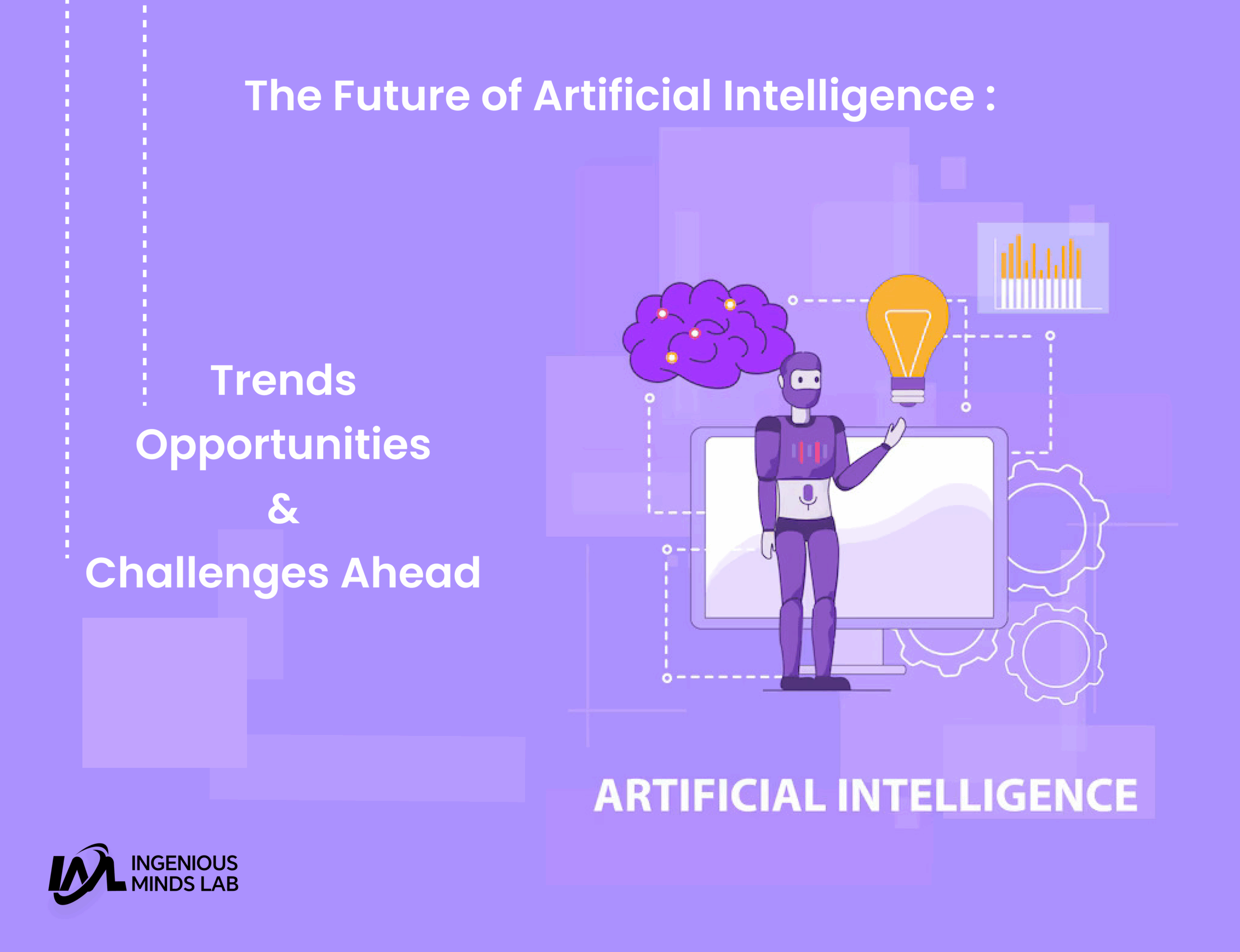Artificial Intelligence (AI) has evolved from a science fiction concept to a transformative force driving innovation in nearly every sector. From automating repetitive tasks to making critical decisions in real-time, AI is no longer the future — it’s the present. But what does the future of Artificial Intelligence hold?
In this blog, we’ll explore upcoming trends, emerging opportunities, and challenges we must address to ensure responsible growth. Whether you’re a tech enthusiast, a business owner, or simply curious about where AI is heading, this post will provide insights into the future of Artificial Intelligence and how it will shape our world.
1. Current State of Artificial Intelligence
Before diving into the future of Artificial Intelligence, it’s important to understand where we are now. In 2025, AI is already being used in:
Voice assistants like Alexa and Siri
Recommendation engines in Netflix and Amazon
Predictive analytics in finance and marketing
Image recognition in healthcare and security
Autonomous vehicles and smart transportation
Thanks to machine learning, deep learning, and natural language processing (NLP), AI has made significant progress in understanding and mimicking human intelligence.
2. Key Trends Driving the Future of Artificial Intelligence
Several trends are paving the way for the future of Artificial Intelligence. These developments are setting the stage for more widespread, efficient, and responsible use of AI technologies.
a. Generative AI Expansion
Generative AI models like GPT and DALL·E are revolutionizing content creation. From generating articles and artwork to writing code and designing websites, the future of Artificial Intelligence lies in generative capabilities that reduce human workload without compromising creativity.
b. AI Democratization
As AI tools become more accessible, businesses of all sizes can leverage them without needing a large technical team. This democratization is a crucial element in the future of Artificial Intelligence, ensuring that innovation is not limited to big tech companies.
c. Edge AI & IoT Integration
AI models are being deployed on edge devices such as smartphones, cameras, and sensors. This allows real-time decision-making without needing cloud connectivity. The future of Artificial Intelligence will involve tighter integration with IoT to enable smarter cities, homes, and factories.
d. AI in Healthcare
One of the most promising aspects of the future of Artificial Intelligence is in healthcare. AI will soon be able to predict diseases, customize treatment plans, and analyze medical images with greater accuracy than humans.
e. Explainable AI (XAI)
As AI systems take on more responsibility, transparency becomes essential. The future of Artificial Intelligence will emphasize explainability so users understand how decisions are made — crucial in fields like law, finance, and healthcare.
3. Opportunities in the Future of Artificial Intelligence
AI is expected to add $15.7 trillion to the global economy by 2030. Here’s how the future of Artificial Intelligence presents unique opportunities:
a. Job Creation in New Fields
Contrary to popular fear, AI will not just replace jobs — it will also create them. Fields like AI ethics, data annotation, model training, and algorithm auditing will see high demand. The future of Artificial Intelligence offers new career paths for both tech and non-tech professionals.
b. Smarter Education Systems
AI-powered personalized learning platforms are transforming education. In the future of Artificial Intelligence, students will learn through AI tutors that adapt content based on their learning speed and style.
c. Sustainable Solutions
AI will play a key role in climate modeling, energy optimization, and resource management. The future of Artificial Intelligence could be instrumental in combating climate change through predictive analytics and automation.
d. Enhanced Cybersecurity
With the growing threat of cyber-attacks, AI’s ability to detect anomalies and predict attacks will be crucial. The future of Artificial Intelligence promises more resilient digital infrastructure.
4. Challenges Ahead in the Future of Artificial Intelligence
Despite its potential, the road ahead isn’t without obstacles. Several critical issues must be addressed to ensure a safe and equitable future of Artificial Intelligence.
a. Bias in AI Models
AI systems are only as unbiased as the data they are trained on. If not carefully managed, AI can perpetuate racial, gender, or socioeconomic biases. The future of Artificial Intelligence must focus on fairness and inclusivity in data practices.
b. Data Privacy Concerns
AI systems rely on massive datasets, often involving personal information. Ensuring user privacy and complying with regulations like GDPR is essential for a trustworthy future of Artificial Intelligence.
c. Ethical Dilemmas
Can an AI decide who gets a loan or medical treatment? Who is responsible when an autonomous vehicle causes an accident? These ethical questions are at the core of the future of Artificial Intelligence and must be addressed with urgency.
d. Dependence on AI
There’s a growing concern that over-dependence on AI might reduce human critical thinking and decision-making. A balanced approach is necessary to prevent blind reliance in the future of Artificial Intelligence.
5. Regulatory Landscape for AI
Governments around the world are starting to regulate AI usage. The EU’s Artificial Intelligence Act and U.S. executive orders on AI safety are early attempts to build a legal framework. The future of Artificial Intelligence will require global cooperation to establish standards and best practices.
6. What Can You Do to Prepare for the Future of Artificial Intelligence?
Whether you’re a student, entrepreneur, or professional, you can take steps to stay ahead in the future of Artificial Intelligence:
Learn AI basics: Understand how algorithms, data, and neural networks work.
Upskill with tools: Platforms like TensorFlow, Python, and ChatGPT are essential.
Stay updated: Follow AI news, podcasts, and online communities.
Think ethically: Advocate for responsible AI use in your work and community.
Conclusion: Embracing the Future of Artificial Intelligence
The future of Artificial Intelligence is exciting, complex, and inevitable. It holds the potential to solve some of humanity’s biggest problems — but it also raises critical questions about ethics, privacy, and control. By embracing AI with awareness and responsibility, we can build a future where humans and machines work together to create a better world.
Whether it’s transforming businesses, improving healthcare, or making education more accessible, the future of Artificial Intelligence will be defined by the choices we make today. Are you ready for the future?

